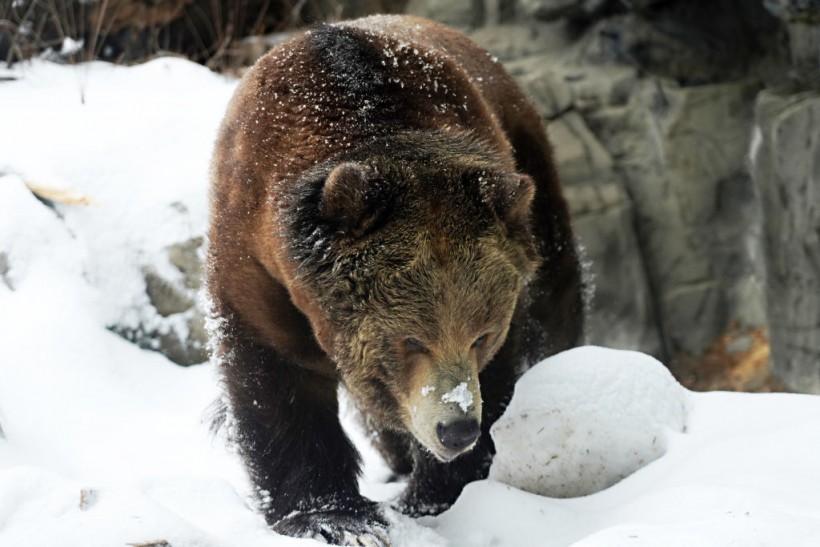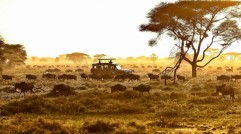Montana Guide Dies After Being Attacked by a Grizzly Bear

A big grizzly bear attacked a backcountry guide from Montana, who was fishing on a river near Yellowstone National Park.
Charles "Carl" Mock, 40, who lived in the park gateway community of West Yellowstone, died Saturday or two days after he was attacked, Fox News reported.
Authorities believed that the grizzly bear is trying to protect a nearby moose carcass found 45 meters from the site of the attack.
According to the Associated Press, the Yellowstone region of Montana, Idaho, and Wyoming is home to more than 700 bears. The attack follows the increase of the grizzly population, with more people moving into rural areas near the bear habitat.
READ NEXT: Grizzly Bear Attack Video: Woman Survives Vicious Attack by Mama Bear at Alaska Military Base
Grizzly Bear Mauls a Montana Guide
Christine Koosman, a spokesperson from the Gallatin County Sheriff's Office, said the bear attacked Mock while fishing alone in a forested area along the Madison River several miles north of West Yellowstone.
Mock managed to call 911 after the attack, and he was found after searchers looked for him for about 50 minutes. The victim reportedly suffered significant scalp and facial wounds.
A residue from bear spray meant to protect against attacks was found on the victim's clothing. However, officials could not determine whether he was able to use it against the bear.
The sheriff's office said that Mock was transported by sled and snowmobile to an ambulance before he was brought to a hospital in Idaho Falls, where he died.
The male grizzly bear, which weighed about 420 pounds, was shot and killed when it charged a group of seven investigators, including bear specialists and Forest Service personnel. The grizzly bear died about 18 meters away from the group.
What To Do If You Encounter a Bear
Although seeing a bear in a national park is a treat for the visitors, the National Park Service (NPS) noted that bears are wild and dangerous due to unpredictable behavior. Staying calm is the key to safety.
NPS noted that standing still but wave your hands slowly will help the bears recognize that what they see is a human and not a prey animal. Talk calmly to the bear and in low tones could also help in identifying that you are human.
Keep in mind that unnecessary screaming and any sudden movement may trigger an attack. Bear Smart noted that avoiding the bear will save an individual from any unpleasant encounters.
Also, it said that checking the surrounding if there are any food sources or carcasses, which often attract bears, should be habitually done because bears, especially females, are hostile when defending food.
NPS also noted that playing dead against brown or grizzly bears is also effective. However, it will not be of help during a black bear attack.
Scott Riley, Mock's friend, said the victim was "an extremely experienced" guide who knew the risks of working in proximity to grizzly bears.
Riley said that he and Mock spent ample time outdoors, and they have seen lots of bears in the past but never had any problem.
Since 1975, grizzly bears have been federally protected as threatened species outside Alaska. Thus, hunting grizzlies is not allowed by law.
READ MORE: Video of Bear Walking Upright Raises Concerns About Animal Cruelty
WATCH: How to Survive a Bear Attack - From ABC News
Subscribe to Latin Post!
Sign up for our free newsletter for the Latest coverage!













